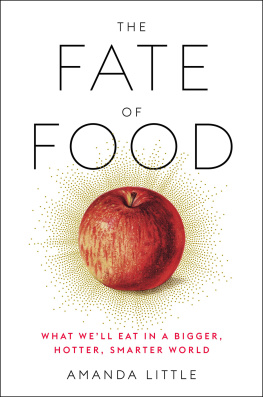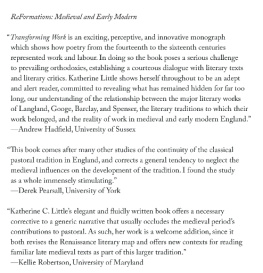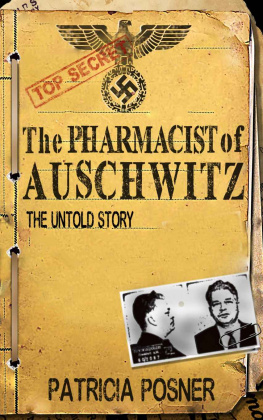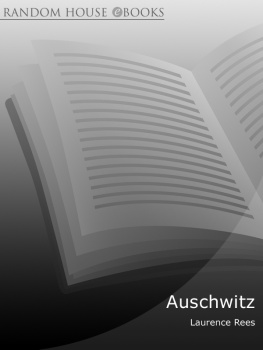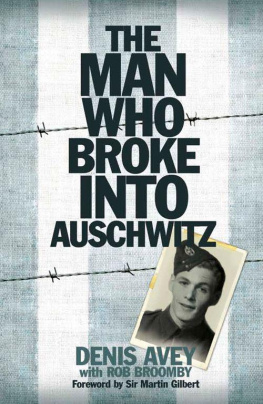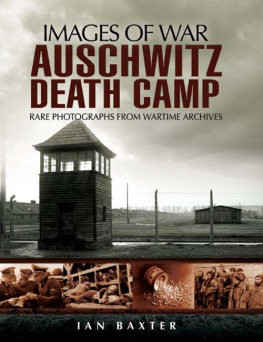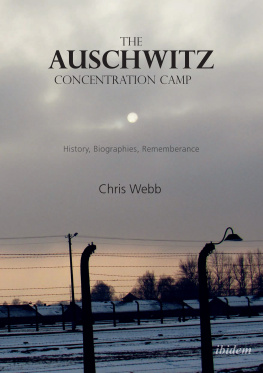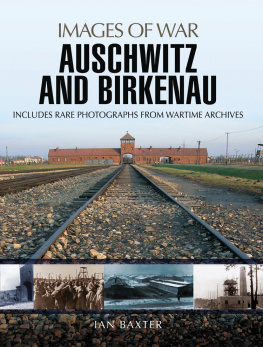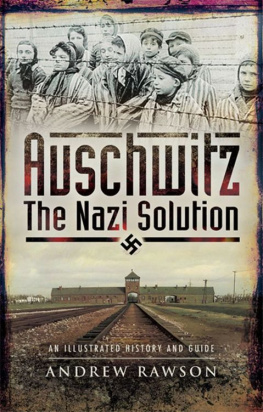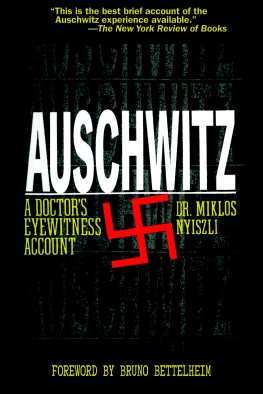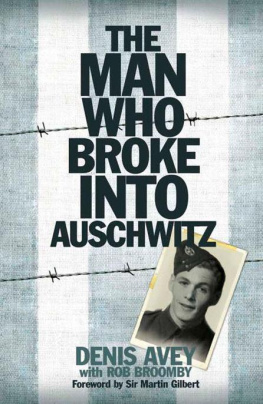
DUNCAN LITTLE studied History at the University of Surrey from 1993 to 1996 before heading to Falmouth College of Arts where he qualified as a broadcast journalist in 1997. In the same year he started his career in television at ITV Westcountry, where he worked in news and current affairs. He researched, produced and directed the highly acclaimed West Country Top Secret television series which examined world, national and regional events during the Cold War. The six programmes won a Special Jury REMI Award at the 2005 WorldFest International Film Festival. He continues to work both in news production and in the making of factual programmes.
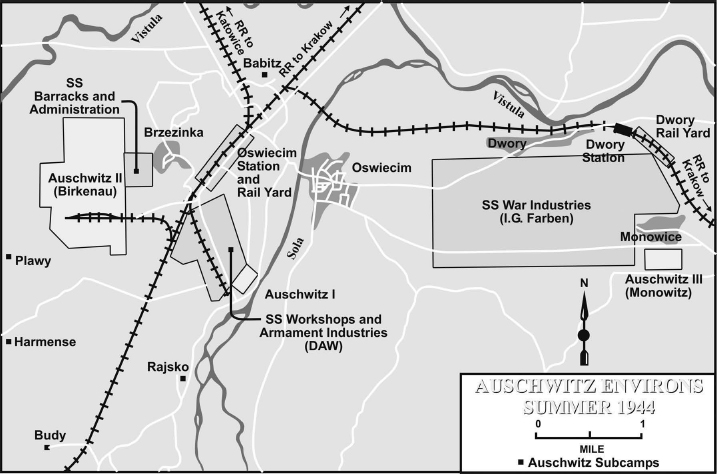
Allies in Auschwitz
The Untold Story of British POWs Held Captive
in the Nazis Most Infamous Death Camp
Duncan Little

Great evils almost always spring from small, apparently insignificant misdeeds
- Rudolf Hoess (Commandant of Auschwitz)
Clairview Books
Hillside House, The Square
Forest Row, East Sussex RH18 5ES
www.clairviewbooks.com
Published by Clairview 2012
Duncan Little 2009
For photography and illustrations see Notes
Duncan Little asserts his moral right to be identified as the author of this work under the Copyright, Designs and Patents Act, 1988
All rights reserved. No part of this publication may be reproduced, stored in a retrieval system, or transmitted, in any form or by any means, electronic, mechanical, photocopying or otherwise, without the prior permission of the publishers
A catalogue record for this book is available from the British Library
ISBN 978 1 905570 40 9
Cover by Andrew Morgan Design incorporating a photograph of British
POWs in E715 Auschwitz in 1944 (with Doug Bond in the front, centre)
Typeset by DP Photosetting, Neath, West Glamorgan
Contents
Acknowledgements
Firstly, thank you to Beth Rose, Phaedra, Colin and also my father for reading early drafts of Allies in Auschwitz and making constructive comments along the way. I am grateful for the research work provided by Mischa Loughnane and wish to thank Dr Todd Gray for encouraging me to write this story.
I should make reference to Colin Rushtons book Spectator in Hell, which followed the story of a British POW who was imprisoned in Auschwitz during World War II.
Thank you to the staff at the National Archives and the Imperial War Museum. I spent a large amount of research time at both locations and ploughed my way through a colossal number of documents. Their help during this process was immensely valuable.
Finally, I am so grateful and appreciative to the men who allowed me to interview them regarding their experiences: Doug Bond, Arthur Gifford-England and Brian Bishop.
Introduction
We are all familiar with the image of Steve McQueen in The Great Escape and the iconic image portrayed by Hollywood concerning life as a POW in German camps. The truth, however, is very different. This book is the story of a group of men who maintained their rights as POWs but were sent to a prisoner of war camp situated on the outskirts of the Third Reichs largest death camp.
The British prisoners of E715 Auschwitz were first hand witnesses to the Nazis brutal treatment of the Jews that culminated in the Final Solution. Very little is known of their story and their experiences were largely forgotten, or ignored, in post-war Britain.
Their POW camp was to the east of the main complex and around 400 yards from the Monowitz concentration camp. The area was known as Auschwitz III and was sited to the south of the River Vistula. A railway line (to Krakow) passed close to their camp. The British POWs were forced to work alongside concentration camp inmates in a Nazi factory, and the men witnessed daily killings around them.
The retention of their POW status afforded them certain rights - including access to Red Cross parcels. After the war, many of these men recounted how this lifeline was vital in preserving their strength. There was little they could do to help the concentration camp inmates and they could only watch as the Jews were frequently murdered in front of them. They could also smell the bodies being burnt in the crematoria and, when they were resting in their barracks, would hear Jews being shot in the nearby concentration camp.
The British prisoners underwent their own hardships as they simply were not equipped to deal with living and working in temperatures many degrees below zero. Despite the delivery of Red Cross parcels, they were provided with little food and this commodity was often scarce. A number of men within the group were beaten, one was murdered by a guard and a few were sentenced to hard labour in the nearby coal mines. There were also reports that some British men were sent into special punishment cells which were designed to cause severe cramp as they were too small to either stand up or lay down.
The surviving mens final ordeal was to march hundreds of miles, in the depths of winter, to secure their freedom in the spring of 1945.
This book charts the true story of these men: from their arrival in cattle trucks through to their departure, on foot, at the end of the war. It contains interviews with the few surviving members of E715 Auschwitz and, in particular, it focuses on the story of one man: Brian Bishop. He was in his early twenties when he was imprisoned at the camp and what he witnessed haunted him for years afterwards.
For the majority of his life, Brian was unable to talk about what he saw. He could not bring himself to tell his wife, his family or his closest friends. He only began to recount his experiences, and finally tell his story, when research for this book started in 2006. For the first time in more than 60 years, Brian has provided an overview of what daily life was like for the prisoners of E715 Auschwitz.
Allies in Auschwitz also contains interviews with Doug Bond and Arthur Gifford-England. They were both sent to E715 Auschwitz and, like Brian, were interviewed between 2006 and 2009.
It is important to remember that peoples ability to recall details and events can become distorted by the distance of time. I have, therefore, sought to cross-reference each of these mens individual testimonies with the other members of this small group. I hope this exercise has successfully ensured a clearer, more accurate picture of events. They all independently agree that the events described in this book are accurate.
Much attention has, rightly, been placed on the exceptionally poor conditions endured by Allied soldiers abused by Japanese guards during the war. It is perhaps not surprising that the focus for wartime abuse lies in the Far East. It has been estimated that a staggering 80 per cent of the men forced into slave labour by the Japanese died during their captivity.
Some of the British POWs in Europe also faced severe levels of abuse as they were re-classed as concentration camp inmates.
It is unclear how many Allied men were forced to work as slaves for the Nazis. Most of these men were not Jewish. Many of them had escaped from other POW camps or had worked with underground resistance units. Their actions led the Nazis to re-categorize them as political prisoners, which meant they lost their POW status and, therefore, the rights afforded to them under the Geneva Convention. Various British soldiers were dispatched to concentration camps which included Buchenwald, Belsen and Theresienstadt.
Next page


